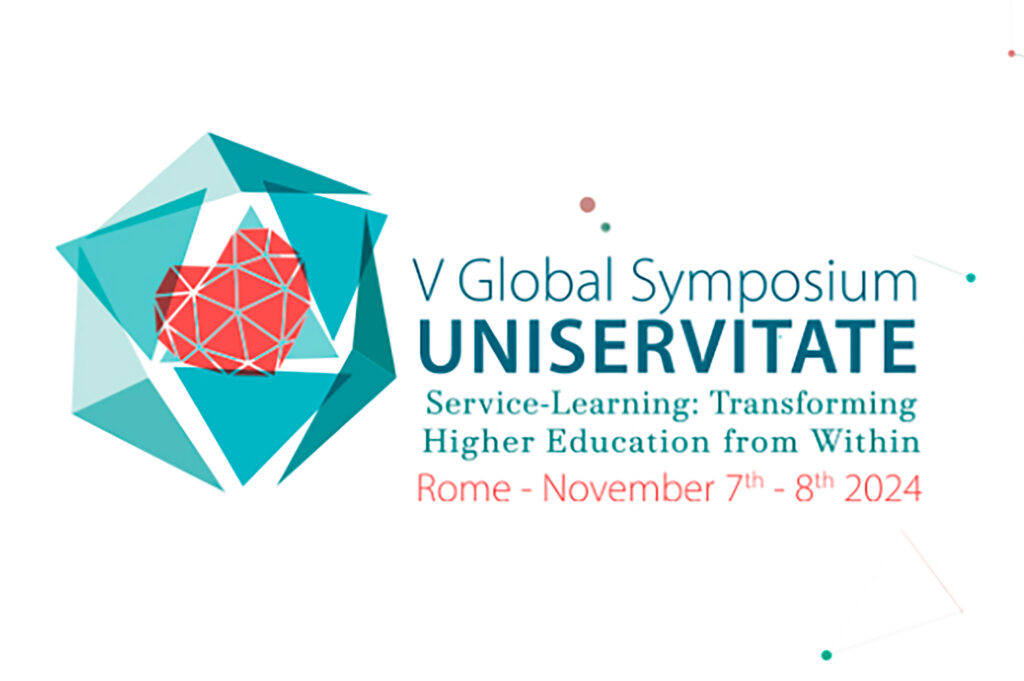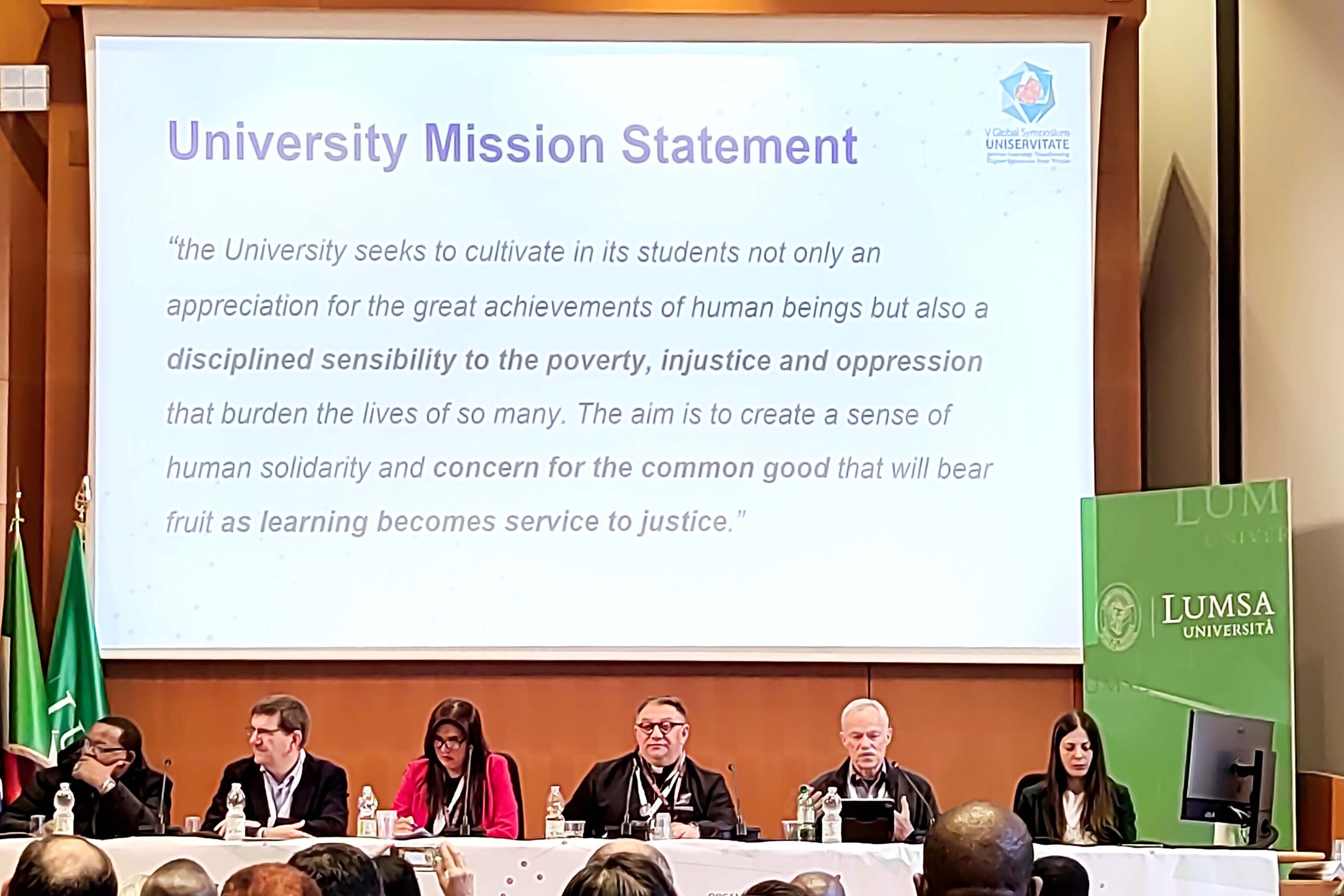On 7 and 8 November, IQS participated in the 5th UNISERVITATE Global Symposium held in Rome. It also represented the first time that IQS attended the gathering as a member of this international network.
UNISERVITATE is a global programme that promotes learning and solidarity services in Catholic higher education institutions. This initiative, promoted by Porticus and coordinated by the Latin American Centre for Learning and Solidarity Services (CLAYSS), seeks to promote the development of service learning in both formal and non-formal education, offering advice to policymakers, NGO leaders, communities, educators, and students.
The objective of UNISERVITATE is to generate systemic change through the institutionalization of service learning, enabling higher education institutions to fulfil their mission of offering a comprehensive education and actively getting new generations engaged in current issues. The name of the programme combines the concepts of university and service, and its logo represents a model of globalization that reflects the convergence of all its parts, preserving the diversity of each one.
This global programme addresses the uniqueness of the institutions and people that make them up in a society seeking the common good and offering a place for everyone. In addition, it promotes comprehensive education through service learning, encompassing the mind, hands, heart above all.

The fifth edition of the event, entitled “Service-Learning: Transforming the University from Within,” renewed the spirit that inspires and sustains UNISERVITATE, focusing on the institutionalization of service learning. With the support of the Dicastery of Culture and Education, the coordination of UNISERVITATE, and the LUMSA host team, an intense and enriching programme was prepared.
During the plenary sessions, the possible ways to institutionalize service learning in Catholic higher education institutions were discussed, delving into the spirituality of service and the links between the two issues. Convergences and thematic perspectives of the Global Compact on Education, the Sustainable Development Goals, and service-learning best practices were also discussed, along with current research.
In addition, the students and faculty involved in the UNISERVITATE 2024 Award-winning projects presented their experiences. The rectors of the partner institutions held a meeting, and the winning researchers of the 2023/2024 Small Research Fellowships held a discussion with the members of the UNISERVITATE Academic Resonance Fund.
It is worth highlighting that IQS was a finalist at Hub South Europe with the thesis work carried out by Santiago Murillo Amador, a chemistry student, supervised by Dr Magda Faijes, Dr Margalida Artigues, and Dr Lourdes Margarit. This work, entitled “Influence of fermentation processes on coffee quality: development of an HS-SPME-GC-MS method to analyse volatile compounds and determine their correlation with tasting values in coffees,” was conducted in collaboration with the Rafael Landívar University of Guatemala and is linked to a project to improve the quality of coffee in the country by working with the coffee-producing communities of Escuintla and Santa Elena and the Tomastepec cooperative in Palencia, Guatemala.
You can find more information at “Uniservitate” 2024 Symposium: A transformative meeting for Catholic education and universities taking action for a more supportive world.










